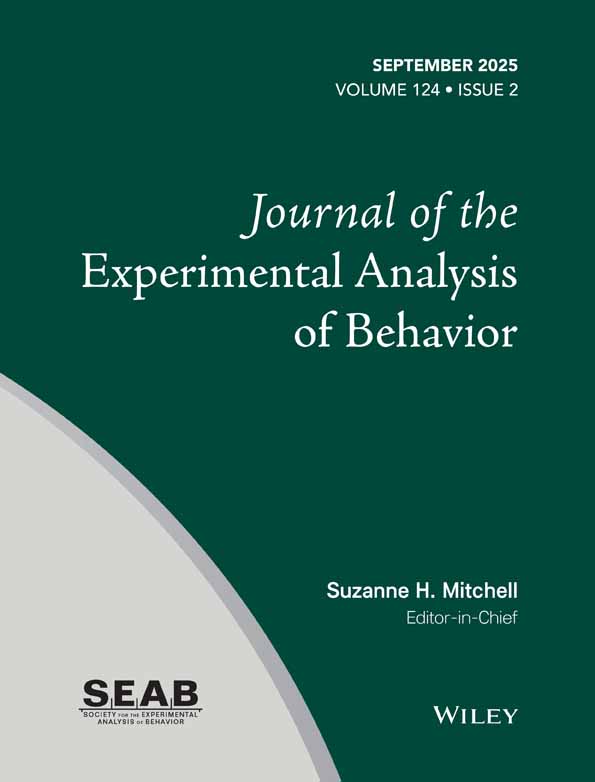THE EFFECT OF OVERTRAINING ON BEHAVIORAL CONTRAST AND THE PEAK-SHIFT1
The data from this study are part of the thesis submitted to the Graduate School of the University of Arizona in partial fulfillment of the requirements for the Masters of Arts degree for the first author. Partial support for this study was provided by a scholarship to the first author from the College of Petroleum. (Saudi Arabia)
Abstract
Following initial discrimination training between two wavelength stimuli and a subsequent generalization test to the wavelength dimension, Group 1 was “overtrained” for 105 days on the original discrimination. Group 2 was “overtrained” with the original positive stimulus and a new negative stimulus, a white line. Group 3 was “overtrained” with the original negative stimulus and a new positive stimulus, the white line. Each 15 days of extended training were followed by a wavelength generalization test similar to the first test. The results suggest that there is no consistent relationship between the response rate in positive stimulus immediately before the generalization test and whether or not a peak shift occurs during the test.




